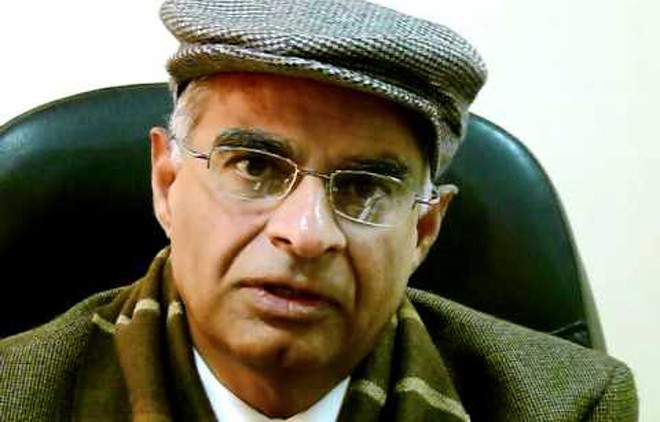
Dr Qamar-uz-Zaman Chaudhry suggests Pakistan should build climate change resilient infrastructures

Dr Qamar-uz-Zaman Chaudhry, former director general Pakistan Meteorological Department and UN-WMO Secretary General’s Special Advisor on Disaster Risk Reduction (DRR) and Climate Change warns that other cities in Pakistan can also face a Karachi-like heatwave.
"Such climate change-related events have had worst implications as people in our cities have no realisation for or resilience against such calamities. They are better ready to face floods and rains than a heat wave."
Chaudhry places Pakistan among the most vulnerable countries to climate change in the world with threats to water, energy, and food security.
"We are going to observe increase in temperature, erratic rainfall events and increased frequency and intensity of floods and droughts in Pakistan because of climate change," he informs.
He says glaciers and snow provide 70 per cent of fresh water to the country and with increase in temperature they would deplete, creating serious water issues for the country.
A UNDP report has found that Pakistan can lose USD 6-14 billion annually due to climate change phenomenon.
"Agriculture sector is the worst hit in Pakistan. Some international studies suggest that Pakistan would lose 10-15 per cent of its wheat crop production because of climate change. The spending on health sector would also increase to a greater extent," he says. "The country needs to build climate change resilient infrastructure."
Chaudhry suggests "We need to do zoning for housing. The zones which fall in the way of floods should be banned for housing while, on the other hand, we need to build a strong drainage systems in urban areas."
There are projections that temperature would increase by 4 degree by the end of this century. "It will be too late to react once temperature increase by 2 degree. We need to multiply our efforts to understand and tackle the situation."
He shows a way out, "Adaptations should be our first priority though we need to work on mitigations at the same time as well."
Chaudhry hopes that Paris negotiations on climate change by the end of this year may change the scenario. "It seems that climate financing would not remain an obligation of the developed countries alone, they are going to demand developing countries, like India and Pakistan, to pool their share as well."
He points out that the tensions between the developed and the developing countries crystalise around the question of funding. "When a binding agreement is signed in Paris in 2015, they will all have to share the responsibility."
He does not think the global community is going to listen to our argument that revolves around per capita green house gas emissions. "Pakistan is 136th in the world on the list of per capita emissions. But when it comes to total emissions, China is at the top, India at number 3 and Pakistan on number 31. It’s time for all countries to share their responsibility."
Chaudhry says that does not mean that Pakistan would not get its share from Green Climate Fund. "At present, USD 10.2 billion have been contributed to the fund and efforts are being made to mobilise USD 100 billion in the fund by 2020. It is now up to Pakistan to get the maximum investment out of the fund. It would only be possible if we come up with viable and sellable projects. We have already missed many good funding opportunities."
He terms the setting up of federal climate change ministry a good step. "Unsettled decision-making affected implementation of climate change policy. The appointment of a federal minister creates a linkage of the climate change with the leadership. It gives voice to climate change agenda."
This is a web-only exclusive interview and did not appear in the print version of TNS.